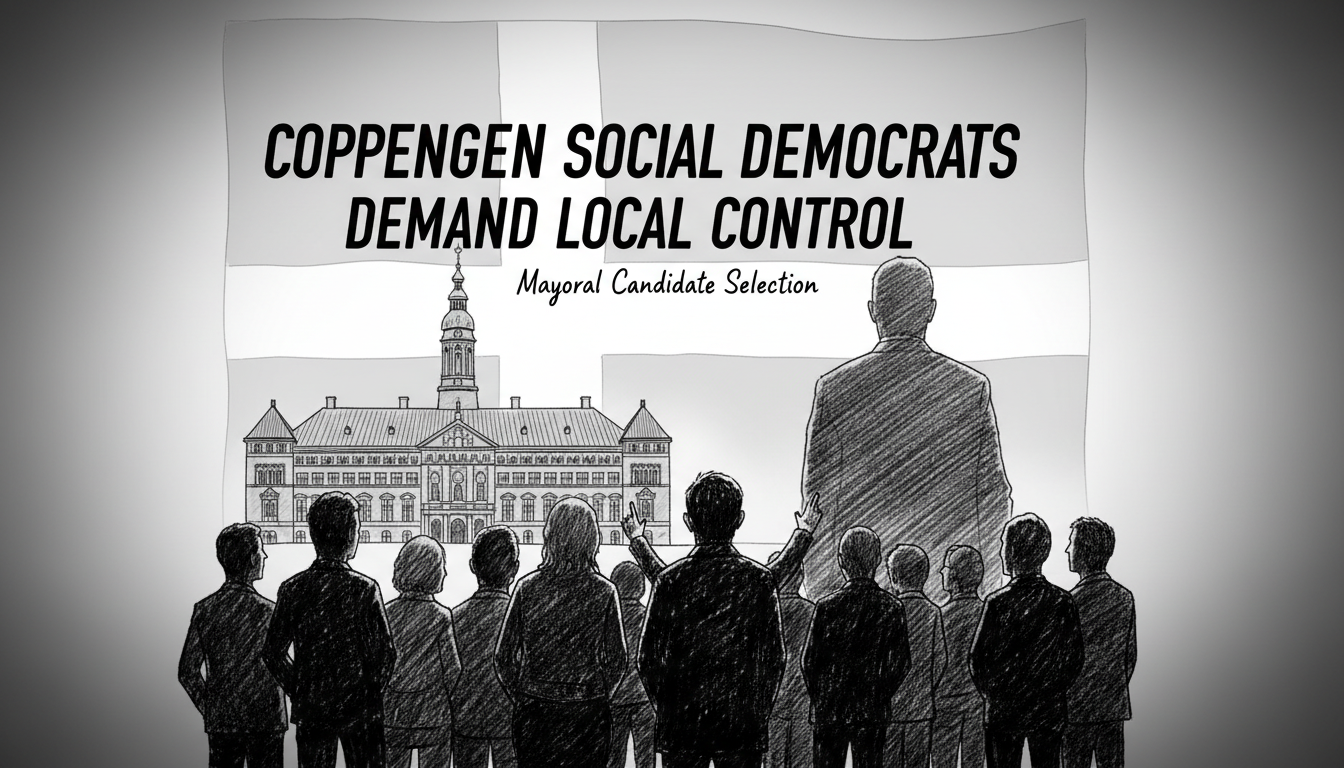Copenhagen's Social Democratic leaders have delivered a clear message to their national party leadership. They want complete local control over selecting the next mayoral candidate for Denmark's capital city. This demand comes after the party suffered devastating election results in the city. For the first time ever, they lost the mayor's office in Copenhagen.
Multiple local party chairs expressed strong opinions about the need for autonomy. They insist the national party leadership should stay out of candidate selection processes. The local organization understands Copenhagen's unique needs best, they argue. This internal conflict reveals deeper tensions within Denmark's largest political party.
Copenhagen represents a special case in Danish politics and social policy. The city faces complex integration challenges that differ from other Danish municipalities. Its diverse population requires nuanced approaches to social services and community development. Local leaders argue they need candidates who understand these specific urban dynamics.
The election outcome shocked many political observers across Denmark. The Social Democrats have traditionally dominated Copenhagen politics. Their loss signals shifting voter attitudes in urban centers. It also reflects changing perspectives on Denmark immigration policy and integration approaches.
Local party officials emphasize that Copenhagen's social fabric differs significantly from other regions. The city's welfare system must address unique urban challenges. Community centers here serve populations with diverse backgrounds and needs. This requires leadership with deep local understanding rather than national political agendas.
Danish society news often focuses on integration successes and challenges. Copenhagen integration efforts have received both praise and criticism in recent years. The city's approach to social policy reflects broader national debates about community development. These discussions directly impact how municipal services are delivered across different neighborhoods.
The demand for local candidate control represents a significant power struggle within the party. It highlights tensions between centralized decision-making and local autonomy. This debate mirrors similar discussions happening in other Nordic countries about governance structures.
What happens next in Copenhagen will likely influence Social Democratic strategies nationwide. Other municipalities may follow Copenhagen's lead in demanding more local control. The party's response to these demands could reshape its approach to urban politics across Denmark.
The Danish welfare system faces particular challenges in major cities like Copenhagen. Housing shortages, educational disparities, and employment gaps affect integration outcomes. Local leaders argue these issues require tailored solutions that national politicians might not fully grasp.
This political development comes amid ongoing debates about Denmark social policy effectiveness. Different municipalities experiment with various approaches to community services and integration programs. Copenhagen's experience often serves as a testing ground for new social initiatives.
The party's internal dynamics will likely influence how it addresses these complex urban challenges. Local control over candidate selection could lead to more innovative approaches to Copenhagen's unique social landscape. It might also create stronger connections between political leadership and community needs.
Political analysts will watch closely how this power struggle resolves. The outcome could signal broader changes in how Danish political parties approach local representation and urban governance. It might also affect how parties nationwide address the specific challenges facing Denmark's largest cities.

